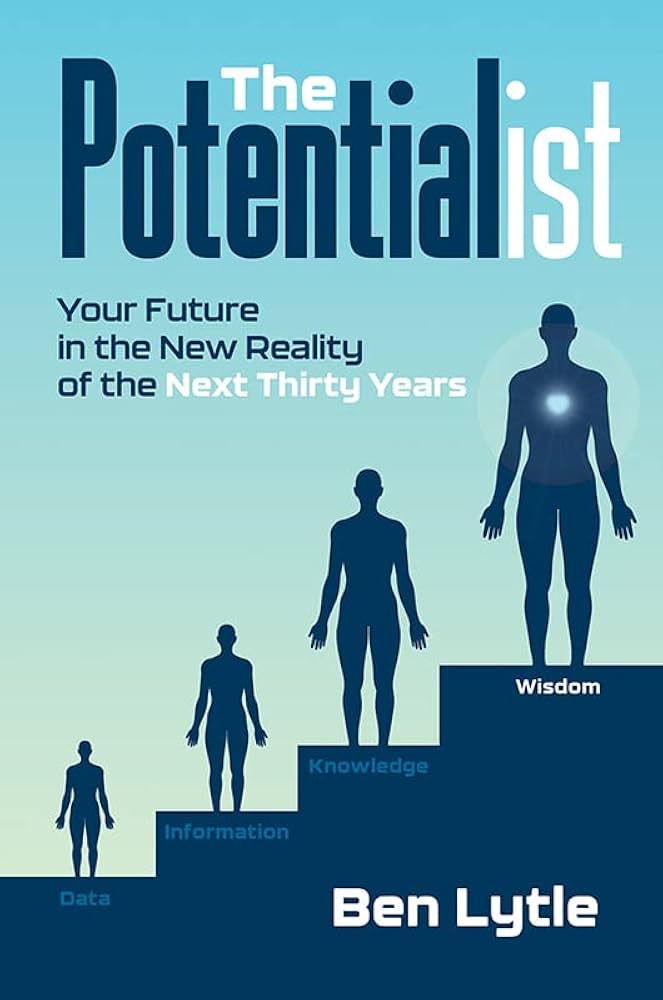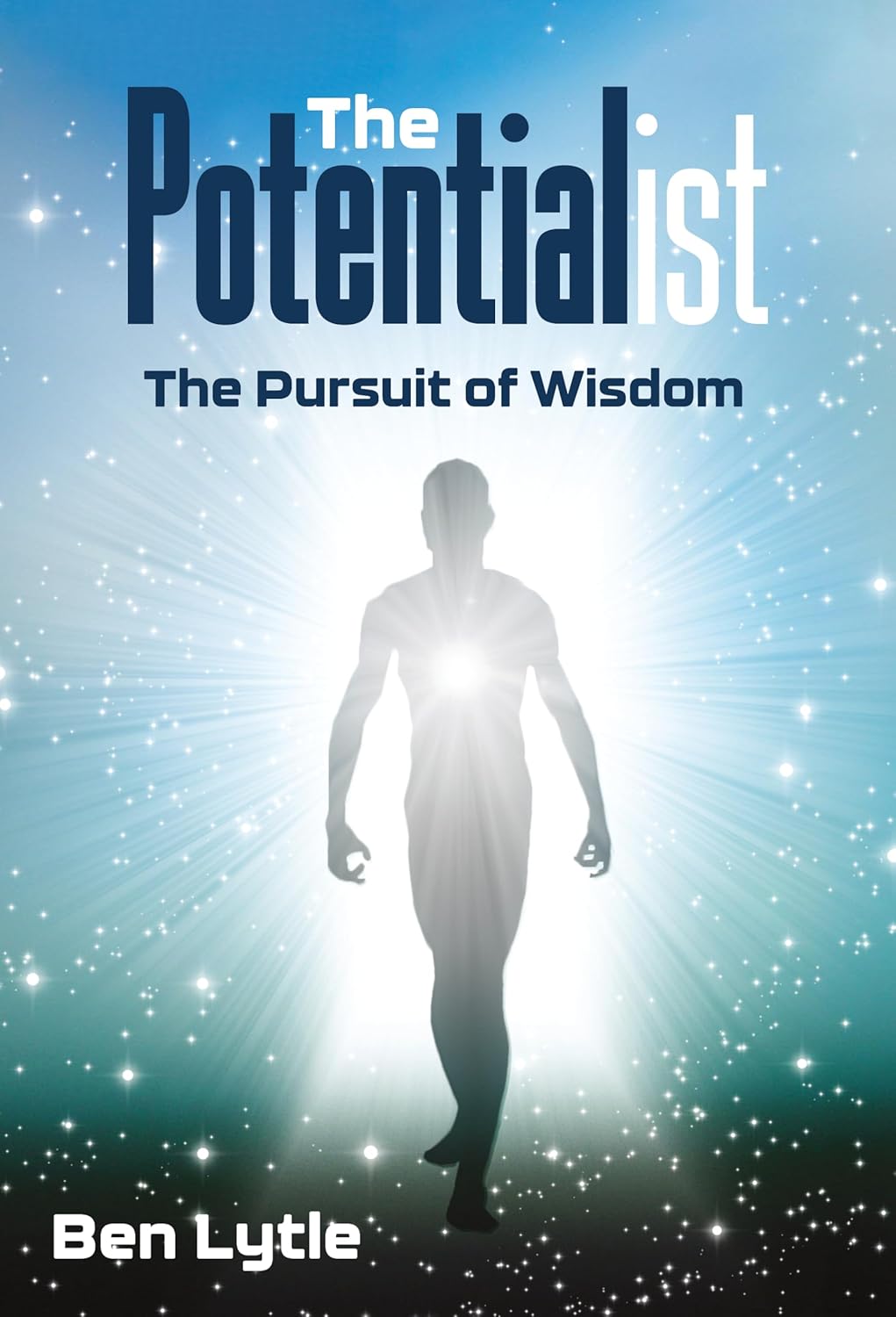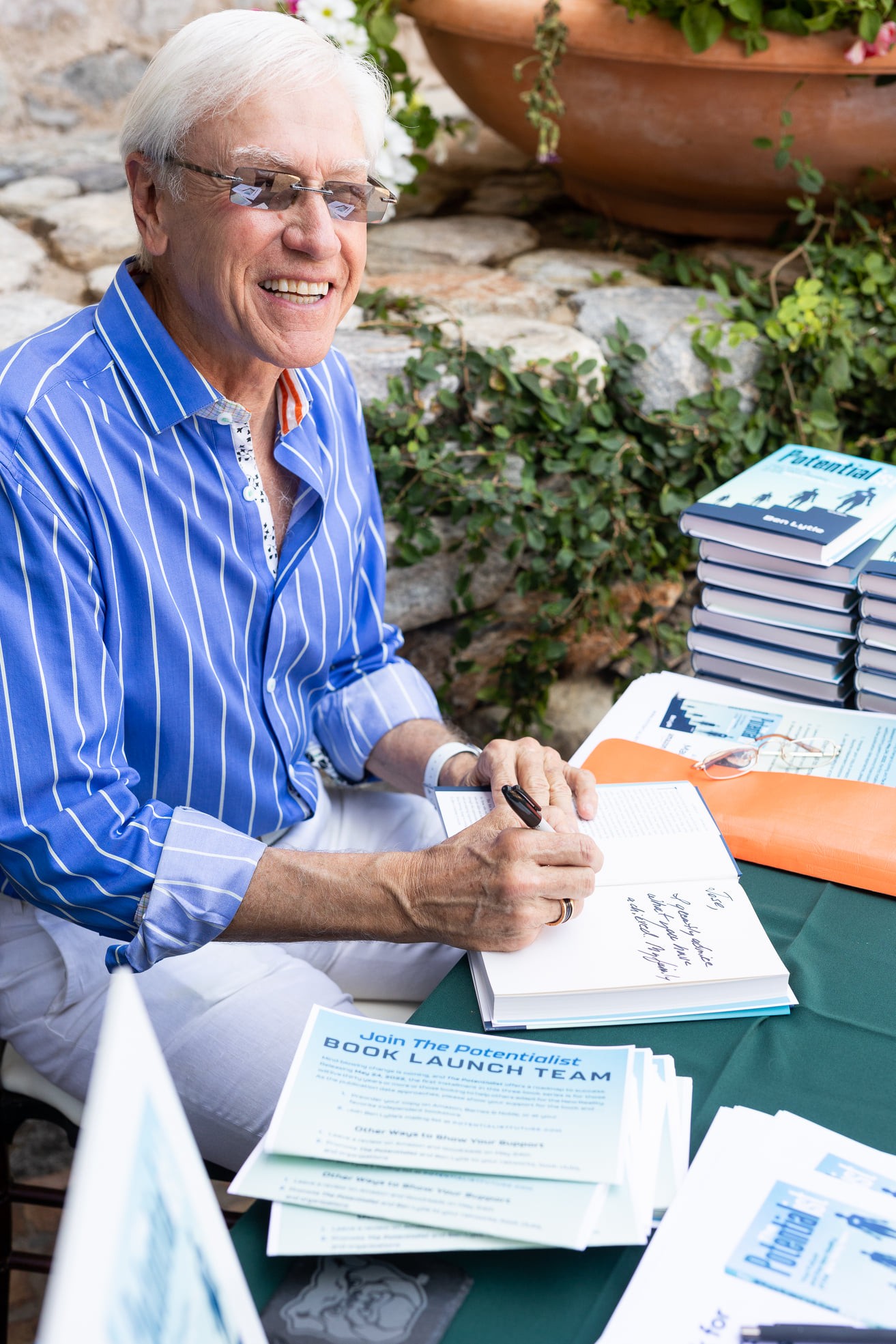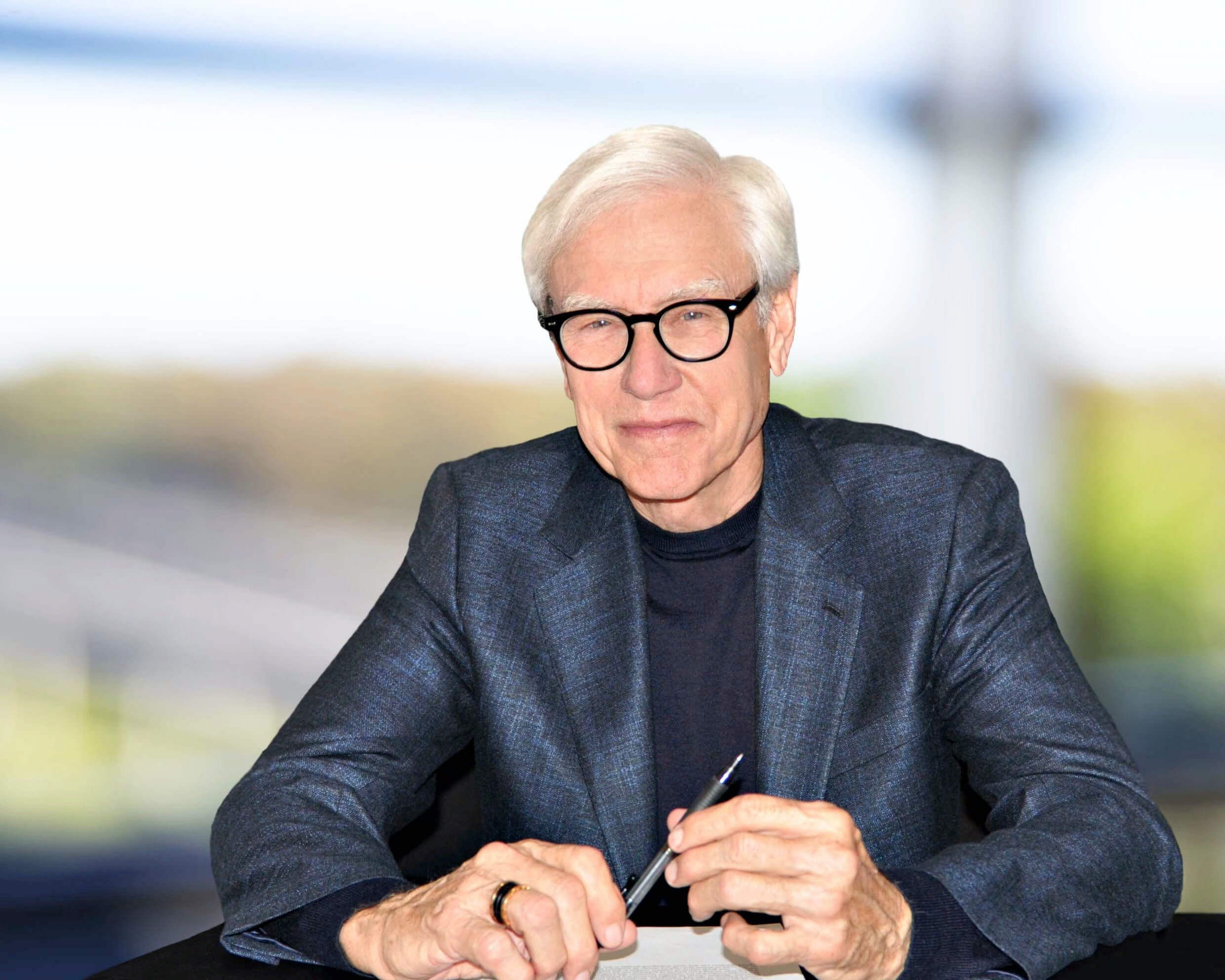We were lucky to catch up with Ben Lytle recently and have shared our conversation below.
Ben, looking forward to hearing all of your stories today. Let’s kick things off with your mission – what is it and what’s the story behind why it’s your mission?
In the last few years, I launched two initiatives that have become the most meaningful work of my life.
The Potentialist book series emerged as I appreciated the profound and rapid changes underway in how we learn, work, live, and evolve, and how few others recognized it. I was shocked that most judge the future pessimistically and fearfully, while the evidence suggests pragmatic optimism. My Potentialist mission became helping others see the future optimistically and fearlessly, so they seize the unprecedented opportunity to reach their expanded potential by living wisely and well. I disseminate this message through The Potentialist book series, speeches, videos, webinars, and consulting services.
The second initiative is The Ark AI company, co-founded with my son Larry, that grew out of Potentialist research. Larry was a Purdue-trained technologist for decades before founding his own financial planning firm. Long before ChatGPT’s debut, our research predicted that Big Tech AI companies would remain wedded to internet-based, AI-fueled searches as their business model, a poor fit for many AI applications because search results could be inaccurate or inconsistent, posing ethical and security risks. Many industry applications require near-perfect accuracy, consistency, security, and ethical design. We chose specific learning, healthcare, and insurance applications. The Ark’s mission is to create an unmatched level of AI capability, ease of use, and ethical, secure reliability. We are well on our way thanks to our remarkable CEO, Lige Hensley, and a talented team of developers.

Great, appreciate you sharing that with us. Before we ask you to share more of your insights, can you take a moment to introduce yourself and how you got to where you are today to our readers.
I grew up on a small Texas ranch surrounded by loving and encouraging, yet cash-poor, parents and siblings. My dad passed along his high-energy, minimal-sleep, strong work ethic genes. I thrived on learning, books, and challenges, and later in life, I discovered that I am autodidactic. Growing up, I hauled hay, picked cotton, fixed fences, raised cattle, had a paper route, pumped gas, was a lifeguard, and drove a florist delivery truck, among other jobs.
In my teens, I was introduced to a career in computer technology thanks to my mom’s encouragement and the help of a kind gentleman who later became my brother-in-law. Everyone in technology was young at the time. I was promoted to manager at the age of 21 and have been in management since then. I married young, like most in my generation. The technology career enabled me in my early twenties to fund college degrees for my wife and me, buy a home, two new cars, and raise two active sons, all virtually impossible for young couples today.
I rose rapidly in technology management at several companies before becoming Chief Information Officer at Blue Cross and Blue Shield of Indiana at age thirty-four, leading one of its largest divisions. Two years later, to everyone’s surprise, I became the company’s Chief Operating Officer. Five years later, I was designated to succeed my mentor Lloyd J. Banks as CEO. I was allowed to propose an aggressive and, some believed, impossible strategic plan and to recruit an exemplary leadership team.
Our goal was to create an Indianapolis-based health plan competitive with any in the world. In little more than a decade, we grew the company’s revenue by sixteen times and market value by thirty-five times. Thanks to what my team began almost forty years ago, and other talented teams continued, Anthem (now Elevance) is an industry leader with a bright future. As described below, I left Anthem to co-found four companies with my entrepreneurial sons. Axia, founded with my son Hugh, was wildly successful. Its products have endured, including SilverSneakers, one of the nation’s largest fitness programs with an average participant age of seventy-eight.
All the companies I co-founded were based on unmet and often unrecognized needs, sound research, and were led by loyal teams who believed in achieving what others thought impossible. That is a shining, timeless lesson for other dreamers.
How about pivoting – can you share the story of a time you’ve had to pivot?
I pivoted many times in my life and career. I am thankful for each choice I made, none more than the controversial decision to step down as Anthem’s CEO at the peak of my career as a large-company CEO.
The decision was difficult for friends and associates to understand at the time. They saw the money, power, prestige, and future opportunities I was walking away from at a relatively young age. But I saw what I was walking towards: being deeply involved in my grandchildren’s lives, traveling for long periods to distant lands, achieving optimal fitness, and partnering in business with my sons. Those goals were inconsistent with being Anthem’s CEO. It was a difficult choice because I loved my job, Anthem, its extraordinary leadership team and associates, and the people of Indiana.
As with all tough choices, you cannot have it both ways, no matter how much you wish it were possible. Once I made the decision, I never looked back and am confident it was the right one.

What’s a lesson you had to unlearn and what’s the backstory?
One could assume my career and life were easy if observed from a distance. Though incredibly blessed, I had my challenges like everyone else. The most difficult challenge reappeared throughout my life and is explained in my second book, The Potentialist: The Pursuit of Wisdom. We learn to recognize and resolve many life challenges without repeating them. Others we repeat again and again in various factual contexts. I named the repetitious variety “crucibles,” using the word’s literary definition, a “metaphorical severe test or trial that forces characters to undergo profound change and reveal their true nature.”
Philosophers and psychologists have pondered why certain problems persist throughout life. One of their findings is summarized in a contemporary saying: ”Our greatest strengths become our most significant weaknesses.” Essentially, the qualities or behaviors that are our greatest strengths are constantly reinforced because they work for us. However, overreliance can lead to ineffective or destructive results.
I can become intensely focused, hyper-focused, immersed in detail, and even manic when solving a problem or pursuing a goal. Many times, I’ve worked 24 hours or more without a break, even forgetting to eat or drink enough water. I often multitask while engaged in other activities. In the past, I foolishly considered myself invulnerable, with no task too difficult or workload too excessive. This capacity served me well, empowering me to work full-time while pursuing my bachelor’s and law degrees and raising a family. That same focus and blind faith emboldened me to lead a fabulous team to create two innovative, industry-changing NYSE-listed companies.
But the quality’s dark side isn’t pretty or healthy. I developed a bleeding peptic ulcer and almost died from blood loss at age 17 because I was working at a half-dozen jobs and attending high school concurrently to save money for college. I often lost perspective on the timing or wisdom of the idea or project I was obsessed with, and I stopped listening to others’ concerns. I neglected the peace of mind and the toned, rested body required for a healthy life.
I will always be wired this way, but over time, I became conscious of the warning signs of excess and backed off. I strengthened my perspective to prevent a project or idea from obtaining a death-grip. I had considerable help from mentors, loved ones, and friends, to whom I am forever indebted. You, too, probably have a crucible if you look for it. Becoming its master instead of its slave will improve your quality of life and the lives of those around you.
Contact Info:
- Website: https://potentialistfuture.com/
- Facebook: https://www.facebook.com/PotentialistFuture
- Linkedin: https://www.linkedin.com/in/ben-lytle-a6a0b914/
- Youtube: https://www.youtube.com/@ben.lytle.potentialist

Image Credits
For the photo of the book signing, the photo credit is: Scott Foust Photography


